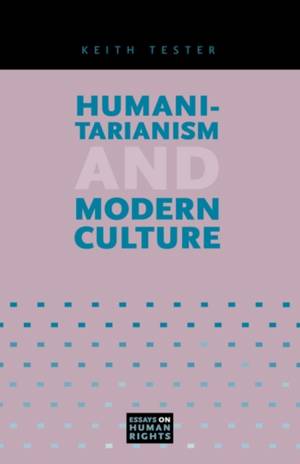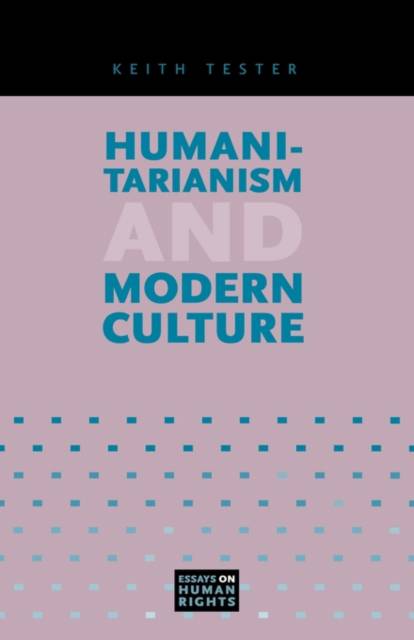
- Retrait gratuit dans votre magasin Club
- 7.000.000 titres dans notre catalogue
- Payer en toute sécurité
- Toujours un magasin près de chez vous
- Retrait gratuit dans votre magasin Club
- 7.000.0000 titres dans notre catalogue
- Payer en toute sécurité
- Toujours un magasin près de chez vous
Description
It seems paradoxical that in the West the predominant mode of expressing concern about suffering in the Third World comes through participation in various forms of popular culture--such as buying tickets to a rock concert like Live Aid in 1985--rather than through political action based on expert knowledge. Keith Tester's aim in this book is to explore the phenomenon of what he calls "commonsense humanitarianism," the reasons for its hegemony as the principal way for people in the West to relate to distant suffering, and its ramifications for our moral and social lives. As a remnant of the West's past imperial legacy, this phenomenon is most clearly manifested in humanitarian activities directed at Africa, and that continent is the geographical focus of this critical sociology of humanitarianism, which places the role of the media at the center of its analysis.
Spécifications
Parties prenantes
- Auteur(s) :
- Editeur:
Contenu
- Nombre de pages :
- 144
- Langue:
- Anglais
- Collection :
- Tome:
- n° 2
Caractéristiques
- EAN:
- 9780271036786
- Date de parution :
- 15-06-14
- Format:
- Livre broché
- Format numérique:
- Trade paperback (VS)
- Dimensions :
- 140 mm x 216 mm
- Poids :
- 190 g

Les avis
Nous publions uniquement les avis qui respectent les conditions requises. Consultez nos conditions pour les avis.






